
John Otway is an English singer-songwriter who has built a cult audience through extensive touring.

George Lowen Coxhill known professionally as Lol Coxhill, was an English free improvising saxophonist. He played soprano and sopranino saxophone.

Peter Dennis Blandford Townshend is an English musician. He is the co-founder, guitarist, second lead vocalist and principal songwriter of the Who, one of the most influential rock bands of the 1960s and 1970s. His aggressive playing style and poetic songwriting techniques, with the Who and in other projects, have earned him critical acclaim.

My Generation is the debut studio album by English rock band the Who, released on 3 December 1965 by Brunswick Records in the United Kingdom, and Festival Records in Australia. In the United States, it was released on 25 April 1966 by Decca Records as The Who Sings My Generation, with a different cover and a slightly altered track listing. Besides the members of the Who, being Roger Daltrey (vocals), Pete Townshend (guitar), John Entwistle (bass) and Keith Moon (drums), the album features contributions by session musician Nicky Hopkins (piano).
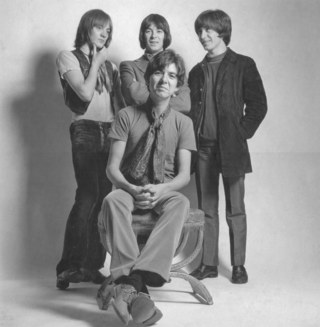
Ronald Frederick Lane was an English musician and songwriter who was the bassist and co-founder of the rock bands Small Faces (1965–69) and Faces (1969–73).

Simon Phillips is an English jazz fusion and rock drummer, songwriter, and record producer, based in the United States. He worked with rock bands during the 1970s and 1980s, and was the drummer for the band Toto from 1992 to 2014.
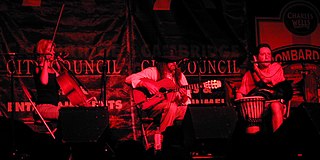
Roger John Barrett, known professionally as Wild Willy Barrett, is an English experimental musician and multi-instrumentalist, best known for his collaborations with John Otway. His musical style has included folk, blues, psychedelia, pop and punk rock and his live performances are punctuated with his dry humour and onstage wit. He is known for virtuoso fiddle playing, ability with a great number of stringed instruments, and playing slide guitar with a whole raw egg. During recent Otway/Barrett performances, he has also introduced the 'wah wah wheelie bin'.

Who Are You is the eighth studio album by the English rock band the Who, released on 18 August 1978 by Polydor Records in the United Kingdom and on 21 August 1978 by MCA Records in the United States. Although the album received mixed reviews from critics, it was a commercial success, peaking at number 2 on the US charts and number 6 on the UK charts.
Thunderclap Newman was a British rock band that Pete Townshend of the Who and Kit Lambert formed in 1969 in a bid to showcase the talents of John "Speedy" Keen, Jimmy McCulloch, and Andy "Thunderclap" Newman.
Track Record was founded in 1966 in London by Kit Lambert and Chris Stamp, then managers of the rock group The Who. It was one of the first British-owned independent record labels in the United Kingdom. The most successful artists whose work appeared on the Track label were The Jimi Hendrix Experience, The Who, The Crazy World of Arthur Brown, Thunderclap Newman and Golden Earring. The label ceased operations in 1978 but was revived in 1999.

The Ultimate Collection is a 2002 two-disc greatest hits set by the Who with both singles and top hits from albums, all of which have been remastered. The compilation was released by Polydor Records internationally and on MCA Records in the U.S. The first 150,000 copies added a third disk with rare tracks and music videos. The album debuted on the Billboard 200 album chart on 29 June 2002, at No. 31 and hit No. 17 on the British charts. It was certified gold by the RIAA on 15 July 2002 and platinum on 13 March 2008.
Medicine Head were a British blues rock band – initially a duo – active in the 1970s. Their biggest single success was in 1973 with "One and One Is One", which reached number 3 on the UK Singles Chart. The group recorded six original albums, the first three of which were released by John Peel's Dandelion label.
"The Acid Queen" is a song written by Pete Townshend and is the ninth song on the Who's rock opera album Tommy. Townshend also sings the lead vocal. The song tells the attempts of Tommy's parents to try to cure him. They leave him with an eccentric gypsy, a self-proclaimed "Acid Queen", who feeds Tommy various hallucinogenic drugs and performs sexually in an attempt to free him from isolation.

Ready Steady Who is the first EP by the Who, released on 11 November 1966, about a month prior to their album A Quick One. The title refers to a Ready Steady Go! TV special the band had recently appeared in, but the EP contains different recordings from those performed on the TV show.

Deep & Meaningless is the second album by English folk singer-songwriter duo John Otway and Wild Willy Barrett. It was released in 1978. The album included the song "Beware Of The Flowers ", which was voted Britain's seventh most popular song lyric in a 1999 BBC online poll. The song's strong showing—ahead of The Moody Blues' "Nights in White Satin" and Hoagy Carmichael's "Stardust"—was the result of what Otway's website described as a "well orchestrated campaign" by fans.
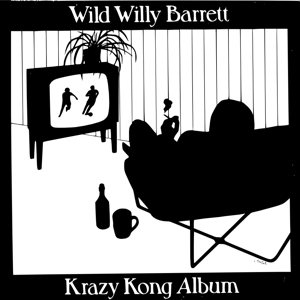
The Krazy Kong Album is a 1980 album by Wild Willy Barrett and released on his own Red Eye Records. The songs are a collection of recordings made over a decade and are available here for the first time. The album is notable for being the first white reggae album recorded, years before Regatta de Blanc, with the title track as a prime example. 'Kong and the Soup Dragon' is a nod to the Clangers with whistles featured throughout.
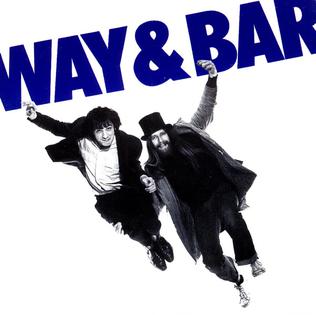
Way & Bar is the 1980 album by John Otway & Wild Willy Barrett. Their last on Polydor, it also proved to be the 2nd split of the duo lasting until The Wimp and The Wild. The name Way & Bar is derived from the billboard on the back of the DK 50/80 single being cropped for the front cover. In this case, the words 'Otway & Barrett' wrap around the sleeve and the rest of the text appears on the back cover.
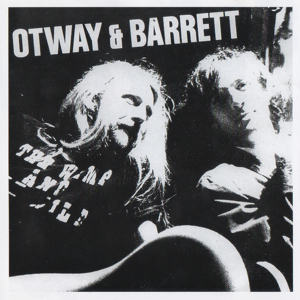
The Wimp & The Wild is the fourth and final album by John Otway & Wild Willy Barrett, released in 1989.
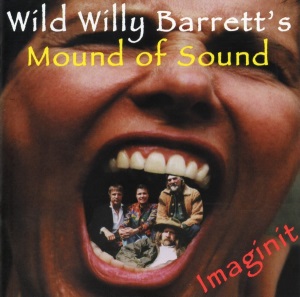
Wild Willy Barrett's Mound of Sound is the fifth solo album by Wild Willy Barrett; released in 1997, it is a collection of newly-written folk songs. The album features contributions from fellow Buckinghamshire guitarist "John Cadman" and "Bad Attitude" a collective made up of Carl Taylor and Stephen Two-Names; Mickey Mouse guy, on his third solo album, Organic Bondage.
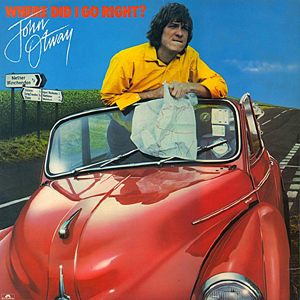
Where Did I Go Right? is English singer-songwriter John Otway's first solo album. Released in 1979 it was Otway's first departure from working with Wild Willy Barrett, and his first working with a different backing band. Most of the tracks were salvaged from an aborted attempt to record an album during August and September 1978 at Mountain Studios.















